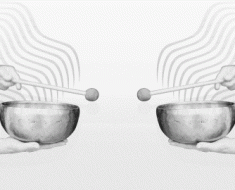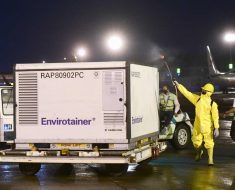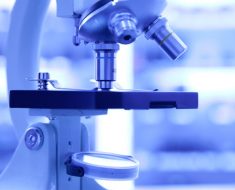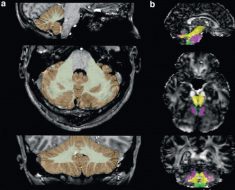The severe acute respiratory syndrome coronavirus 2 (SARS-CoV-2), which is the virus responsible for the coronavirus disease 2019 (COVID-19), has reached nearly every country in the world and has caused over five million deaths. The rapid transmission rate of SARS-CoV-2 caused many countries to enact restrictive and costly social distancing measures including mandatory face masks, closure of public spaces, and even lockdowns/stay-at-home orders.
While some developed countries have begun mass vaccination campaigns that have allowed most of these restrictions to be lifted, many developing countries cannot provide the logistics or resources for the extensive cold chains required for adequate vaccine storage. Furthermore, the development of SARS-CoV-2 variants of concern (VOCs) continue to arise, many of which show increased transmission and infectivity, as well as the ability to evade both vaccine-induced and natural immunity.
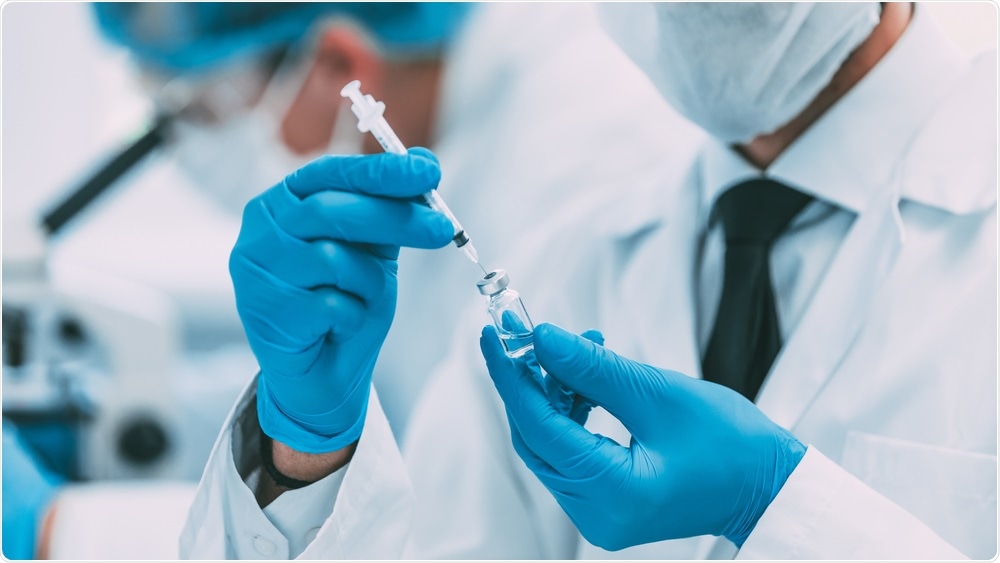 Study: Phase 2 dose-ranging study of the virologic efficacy and safety of the combination COVID-19 antibodies casirivimab and imdevimab in the outpatient setting. Image Credit: SmartPhotoLab / Shutterstock.com
Study: Phase 2 dose-ranging study of the virologic efficacy and safety of the combination COVID-19 antibodies casirivimab and imdevimab in the outpatient setting. Image Credit: SmartPhotoLab / Shutterstock.com
About the study
Since the need for COVID-19 treatments remains high, researchers from Regeneron Pharmaceuticals have been testing a new drug that shows promise. The REGEN-COV treatment is based around two antibodies including casirivimab and imdevimab, which are provided in a single dose at a 1:1 ratio that is administered intravenously (IV) or subcutaneously (SC). Initial results of their Phase II study are presented in their recent study published on the preprint server medRxiv*.
The researchers used a randomized double-blind study, with parallel control groups receiving placebos. The study examined a range of doses.
Nasopharyngeal (NP) swabs and blood cells were collected every other day for the first week, and then monthly for the next four months. All study participants were over the age of 18 and had received a positive SARS-CoV-2 test result under or equal to 72 hours before randomization. No patients thought to be at risk of developing more severe COVID-19 were included in the study.
Patients not in the control group who were eligible received a single dose of REGEN-COV administered either IV or SC. IV doses ranged from 300-2,400 milligrams (mg), while SC doses were only given at 600 or 1,200 mg.
While healthcare workers, providers, and patients were blinded as to the control group and dose, it was not possible to blind them to the method of administration. The researchers were primarily investigating the change in baseline viral load in NP samples over the first seven days. Notably, the researchers also examined the number of adverse and serious adverse effects.
In total, 815 patients were included in the study. An ANCOVA model was fitted to the data for statistical analysis using the treatment group as a fixed effect and baseline viral load and treatment as covariates.
Study findings
Out of the 815 total patients, 523 were assigned to IV treatment and 292 were assigned to SC treatment. No serious cases of COVID-19 developed during the trial. About 90% of patients were low-risk symptomatic and the rest were asymptomatic.
The researchers found that both IV and SC administered doses of REGEN-COV significantly reduced the viral load to day seven. The most effective reduction in viral load was seen when 2,400 mg was administered IV.
At 1,200mg, SC and IV reduced viral load equally, and the dose given when administered SC did not affect the reduction in viral load. The IV dose tended to result in a steady reduction in antibody concentration over all seven days, while the SC dose resulted in a near-maximum value of REGEN-COV concentration by daythree3, although it continued to slowly rise until day seven.
There were no serious safety concerns, although one patient did show a mild reaction. Two other safety issues were determined to be unrelated to the drug.
Conclusions
The authors highlight how the drug showed significant reductions in viral load across all doses and the rapid absorption of REGEN-COV into the body following administration through either route. The lack of safety issues, combined with the linear and proportional pharmacokinetics suggest that the drug is safe for continued testing in patients with more severe COVID-19 and those who are at risk of progressing to a more severe prognosis.
While higher doses resulted in increased viral load reduction, the researchers point out that even the lowest dose showed antibody concentrations reaching between 60 and several hundredfolds the required amount to neutralize most VOCs, thus suggesting that smaller doses could be worth investigating.
As many VOCs are beginning to show an increased ability to evade both vaccine-induced and natural immunity, the increasing amount of promising drugs beginning to approach availability will be a relief to public health policymakers and healthcare workers. Furthermore, the availability of these antivirals should allow more informed decisions for the treatment of patients and any need for re-introducing restrictions.
*Important notice
medRxiv publishes preliminary scientific reports that are not peer-reviewed and, therefore, should not be regarded as conclusive, guide clinical practice/health-related behavior, or treated as established information
- Celhayt, C. P., Forleo-Neto, E., Eagan, W., et al. (2021) Phase 2 dose-ranging study of the virologic efficacy and safety of the combination COVID-19 antibodies casirivimab and imdevimab in the outpatient setting. medRxiv. doi:10.1101/2021.11.09.21265912. https://www.medrxiv.org/content/10.1101/2021.11.09.21265912v1.
Posted in: Drug Trial News | Medical Research News | Disease/Infection News | Pharmaceutical News
Tags: Antibodies, Antibody, Blood, Cold, Coronavirus, Coronavirus Disease COVID-19, Drugs, Healthcare, immunity, Nasopharyngeal, Pharmaceuticals, Pharmacokinetics, Public Health, Respiratory, SARS, SARS-CoV-2, Severe Acute Respiratory, Severe Acute Respiratory Syndrome, Syndrome, Therapeutics, Vaccine, Virus

Written by
Sam Hancock
Sam completed his MSci in Genetics at the University of Nottingham in 2019, fuelled initially by an interest in genetic ageing. As part of his degree, he also investigated the role of rnh genes in originless replication in archaea.
Source: Read Full Article
